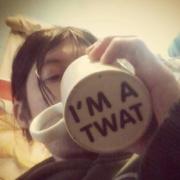|
|
 Originally Posted by OngBonga

It's not about patriotism and I'm not talking about paying twice as much. It's simple economics. The weaker pound makes it more expensive to import. If it costs 10% more to import, or 5% more to buy British, then it makes economic sense to buy British. And if a company pays 5% more than it otherwise would have done, but 100% of that capital stays in Britain instead of going to China, Britian wins, even if the company has to lay off 2% of its workforce to balance the books.
The most important aspect of this is WHY the price of the pound changed, not that it changed. Making claims based on that the price of a currency has changed is VERY common, even among economists*. It's a reasoning from a price change fallacy.
Less abstractly, if the pound depreciates because the Bank of England is purchasing more bonds than usual (and the private sector believes the incoming new money will be permanent in the economy), then exports will expand. But if the pound depreciates because of a reduction in the demand by investors to hold the pound because the Bank of England has slowed bond purchases below trend, then the demand for exports is already baked into the demand reduction for money.
And yes protectionism jacks up prices. In the case of tariffs, it jacks up import prices. So don't import. If you're paying 20p more for a kilo of apples because we're no longer importing them, well you're 20p out of pocket but a British company is maybe £2.20 better off. So now they can employ more people, and expand. If that continues, they become more competetive and the price should come down.
In this hypothetical, the British economy has fewer resources and is worse off.
Another big mistake made by economists -- mostly when communicating with non-economists -- is not making it emphatically clear that real wealth = real resources = real production and that increases in wealth are from doing more with less, the same with less, more with the same, or a combination of those. In your hypothetical, the tariff makes the consumers' real production (represented by the real value of the pound) less valuable per apple, which makes the value of the apple producers' incomes less.
In your hypothetical, nominal terms are the same but real terms are decreased. Aggregate supply has shifted left (it has reduced) and inflation has increased. Here's a quantitative example:
Let's say the economy is made up of 100 pounds and a 100 widgets, resulting in 1 widget worth 1 pound and vice versa. Let's introduce a tariff, and we'll get 50 widgets. Now 2 pounds are worth 1 widget. The price level has inflated and the economy is poorer in real terms. But, per your example, let's ramp up domestic widget production. But wait, the costs of labor and other inputs are higher than with the imported widgets and projections are that widget producers can only sell the same number of widgets as before if the widgets cost 1.5 pounds. So, the new tariff economy of 100 pounds ends up with only 67 widgets produced. The economy is poorer.
More capital stays in Britian. That is obviously a net benefit to the economy.
I'm not sure if more would stay or if it would leave (I think it depends), but regardless it is nominal, not real. The fewer resources from the enacted tariffs is real capital loss in itself.
And if there was a shortage of plumbers, well more people would train to be plumbers.
A shortage results from deviation from equilibrium such that the quantity demanded of labor exceeds the quantity supplied of labor. In that situation, the price of labor is high and quantity low in the market, and more people will become plumbers. Eventually equilibrium will be reached again.
But, your hypothetical is not creating a shortage of labor. It is creating a reduction in the supply of labor itself. This is a leftward shift of the curve, which results in equilibrium with permanently lower quantity and higher price of the labor.
* Reasoning from a price change is a serious problem among economists. Not all do it, but most of what you hear in popular publications do it. All econ 101 textbooks teach to not reason from a price change, but politics is so powerful to some people that even some very smart economists discard established thought in order to maintain a preferred political stance.
|







 Reply With Quote
Reply With Quote













